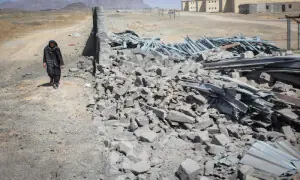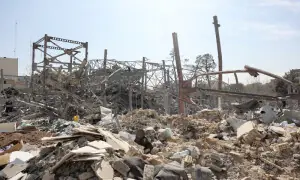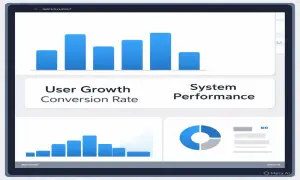Real estate, real returns
4 min readThe real estate sector in Pakistan is a major contributor to the country’s economy, influencing urban development, job creation, and investment opportunities. As the population grows and urbanization accelerates, the demand for housing, offices, and commercial spaces continues to rise, driving significant activity in the market. This sector also supports numerous industries like construction, banking, and manufacturing, creating a ripple effect across the economy.
Despite its potential, real estate faces challenges such as a lack of transparency, outdated regulations, limited access to financing, and inadequate urban planning, which hinder sustainable growth and development. Addressing these issues could unlock the full potential of the sector, transforming it into a foundation of Pakistan’s economic progress.
Pakistan’s real estate market offers diverse opportunities in residential, commercial, and industrial properties, with Karachi, Lahore, and Islamabad as key hubs attracting local and international investors. However, inconsistent regulations, unclear property ownership, and limited transparency create challenges, reducing investor confidence and hindering large-scale, sustained investments.
Despite the challenges, there are inspiring examples of innovation and progress that offer hope for its future. Visionaries like Anosh Ahmed, who have achieved remarkable success in real estate development abroad, provide valuable insights that Pakistan can learn from.
Through his work in the United States and Dubai, Anosh Ahmed has demonstrated how combining vision, innovation, and strategic planning can reshape urban spaces into thriving, sustainable communities. His approach balances profitability with community well-being, showcasing how modern developments can meet economic goals while enhancing the quality of life. These examples serve as a blueprint for Pakistan to adopt more forward-thinking and inclusive real estate practices that drive long-term growth.
Anosh Ahmed has amassed over $150 million in transactions across various sectors, including real estate, healthcare, and telehealth, since 2006. Additionally, his real estate portfolio is valued at $1.5 billion, highlighting a long-term approach focusing on generating steady returns and contributing to community development. While specific details about his investments in Pakistan are limited, his global experience offers valuable insights for the country’s real estate sector.
In the United States, Anosh Ahmed is making a significant impact by revitalizing neglected neighborhoods and turning underused spaces into vibrant residential and commercial centers. His projects stand out for their emphasis on sustainability and their focus on meeting the diverse needs of the communities they serve. By creating affordable, well-designed properties, he not only addresses housing market demands but also aligns with the aspirations of the residents. This approach helps in economic growth, enhance quality of life, and build stronger, more connected communities. His work demonstrates how thoughtful real estate development can create long-lasting value for both investors and the people who live and work in these transformed spaces.
In Dubai’s highly competitive real estate market, he has successfully developed premium projects that seamlessly blend luxury with sustainability. His work integrates advanced technologies and eco-friendly designs, setting a new standard for modern real estate. By focusing on innovative solutions, he caters to the high expectations of today’s investors and residents, delivering properties that are both sophisticated and environmentally conscious. This forward-thinking approach not only enhances the appeal of his projects but also underscores the importance of staying ahead in a global market where innovation and sustainability are key to long-term success.
Key to Anosh Ahmed’s success is his focus on transparency, sustainability, community development, and innovation. Transparency builds trust by ensuring clear documentation and open dealings. Sustainability reduces environmental impact through eco-friendly designs and practices. Community development enhances quality of life by creating integrated spaces with amenities like parks, schools, and healthcare facilities. Innovation leverages smart technologies to improve the functionality and appeal of real estate projects.
Inspired by global practices, Pakistan’s real estate developers have opportunities to unlock the sector’s potential. Digital transformation through technology can improve property management and transactions while attracting modern investors. Sustainable development, using eco-friendly construction materials and energy-efficient designs, appeals to environmentally conscious buyers. Developing integrated communities that combine residential, commercial, and recreational spaces can create vibrant urban centers.
To fully capitalize on these opportunities, Pakistan’s real estate sector must overcome key challenges. Regulatory reforms are needed to streamline policies, eliminate bureaucratic hurdles, and ensure fair practices. Transparency must be improved by standardizing processes and ensuring proper documentation to build investor confidence. Simplifying financing options for both buyers and developers can stimulate growth and make real estate more accessible.
As Pakistan’s population continues to grow, the demand for housing and urban development will increase. The sector’s success will depend on collaboration between policymakers, developers, and investors. By adopting forward-thinking approaches and learning from Anosh Ahmed, Pakistan can develop a real estate industry that drives economic growth and creates thriving communities.
Real estate is more than just building structures; it shapes lives, communities, and a nation’s future. It creates spaces where people live, work, and thrive, directly affecting their quality of life. In Pakistan, real estate has great potential to make a positive impact by tackling challenges with innovative, ethical, and sustainable solutions. By focusing on transparency and community-driven development, the sector can meet urban growth needs while building a brighter, more inclusive future for generations to come.
The writer is a seasoned journalist and a communications professional. He can be reached at [email protected]
For the latest news, follow us on Twitter @Aaj_Urdu. We are also on Facebook, Instagram and YouTube.


























Comments are closed on this story.